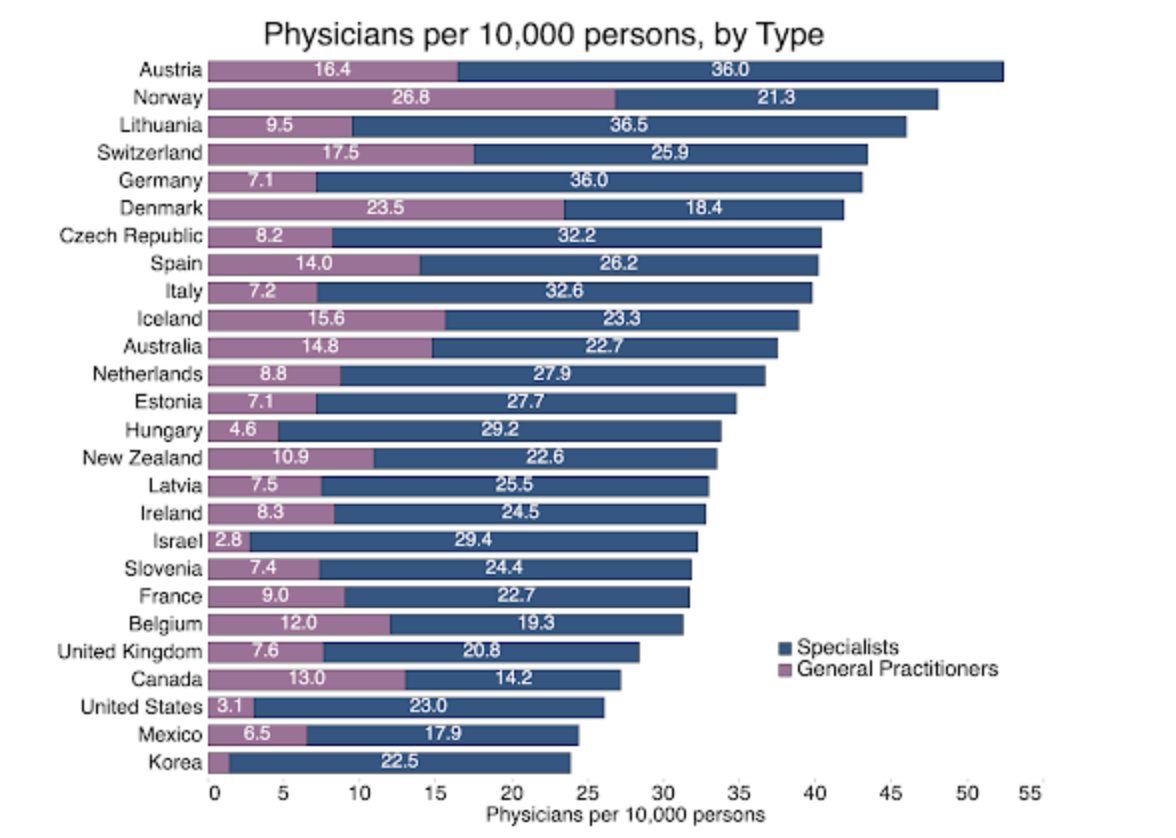The American Medical Association Would Like Doctors To Use Woke Jargon
A new report commits a bunch of familiar sins.

The American Medical Association (AMA) is the paramount advocate, lobbyist, and trade association of doctors and other medical professionals. Its influence in the health care industry cannot be overstated. And it just released a report, co-signed by the Association of American Medical College's Center for Health Justice, titled "Advancing Health Equity: A Guide to Language, Narrative and Concepts."
The report contains different sorts of advice for making health care more equitable. But it mostly focuses on language. And unfortunately, its authors were clearly influenced by the same kind of progressive activists whose jargon has infected academia. The guidance ranges from bad to actively harmful.
Take a look:
Of course medical professionals should avoid unintentional blaming. But what's the benefit of avoiding words like "tackle" and "target"? Should we no longer tackle obesity, or target infections? What's dehumanizing about terms like "vulnerable" or "high-risk"? The benefit of these words is that they have been around a long time, and we know what they mean. That's the point of language: to clearly communicate ideas. We want terminology that people understand, not terminology that is maximally politically correct.
Most of the AMA's new preferred terminology involves additional syllables. You're not supposed to say homeless; you're supposed to say people experiencing homelessness. You're not suppose to say disabled; you're supposed to say person experiencing disability. Doctors often spend only a few minutes with a patient, especially an underprivileged patient. I don't think the best remedy for that is to ask doctors to use longer phrases when shorter ones would do.
Some of the new terminology is also inaccurate. The report wants doctors to stop using the word "minority" and instead say "marginalized." But not all people who are part of a minority are marginalized, and some people who are marginalized are not part of a minority. The report also suggests replacing "vulnerable" with "oppressed," but not all people with a health vulnerability are facing or have faced oppression.
Last week, Centers for Disease Control and Prevention Director Rochelle Walensky inadvertently demonstrated how silly some of this new language would be when she made the following statement: "We know that vaccination helps to decrease community transmission, and protect those who are most vulnerable." Imagine if she had said "most oppressed" instead. That would make absolutely no sense.
"Men are more vulnerable to COVID-19 than women, but not because men are more oppressed," writes The Atlantic's Conor Friedersdorf. "My grandmother is far more vulnerable to the disease than a wrongfully incarcerated teenager, yet she is far less oppressed."
Meanwhile, the report avoids criticizing one of the foremost structures standing in the way of health equity: the AMA itself. As Matthew Yglesias notes in a Substack post criticizing the new guidance, there are all sorts of ways that the AMA works to prevent a better health system from emerging. He cites this chart, which shows that the U.S. has far fewer doctors per person than other countries:

One reason this is the case is that the AMA is constantly "blocking increased scope of practice for nurses, making it hard for foreign-trained doctors to practice in the United States, and historically pushing to train too few doctors here at home," writes Yglesias. "It's a trade association and, unfortunately, this is what trade associations do."
Similarly, the economists Tyler Cowen and Alex Tabarrok write, "If the AMA really wants to do something for health equity they should stop trying to police language and instead support nurse practitioners, midwives, physician assistants, and other healthcare professionals who want to expand their practices, lobby for more physicians and an end to the absurd residency bottleneck, and support greater hospital competition. Physician heal thyself."


Show Comments (61)